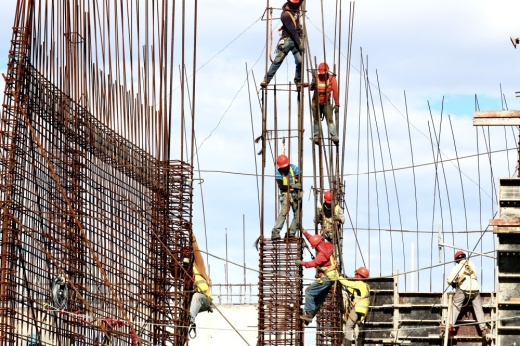District Judge Maya Guerra Gamble made the ruling just two days before the law is set to go into effect, siding with the cities of Houston, San Antonio and El Paso. House Bill 2127, known as the Texas Regulatory Consistency Act or the “Death Star bill,” would crack down on an array of local regulations.
The details
“House Bill 2127 in its entirety is unconstitutional, void, and unenforceable,” Gamble wrote in her final judgment.
It was not immediately clear if the state will appeal the ruling. The controversial bill is still set to become law Sept. 1.
The city of Houston filed a lawsuit challenging the legislation July 3, arguing the bill was too vague and broad. Officials argued the Texas Constitution gives cities the right to tailor their laws to meet local needs, indicating local regulations should only be preempted by the state when the two laws cannot coexist.
The cities of San Antonio and El Paso later joined the suit.
Zooming in
The legislation, authored by Rep. Dustin Burrows, R-Lubbock, would prevent local officials from adopting or enforcing ordinances that go beyond state or federal law in a variety of areas, including agriculture, business and commerce, finance, labor, natural resources, occupations and property.
During the regular legislative session, Burrows said HB 2127 would ensure consistency across Texas and offer certainty for local businesses.
“We want those small-business owners creating new jobs and providing for their families, not trying to navigate a byzantine array of local regulations that twist and turn every time they cross city [boundaries],” he said during an April 18 debate in the Texas House.
The bill’s opponents have expressed concerns that it would undermine local worker safety provisions, nondiscrimination ordinances and more.
Ordinances that mandate rest breaks for construction workers in Austin and Dallas would be repealed under the law alongside a Houston program that requires city contractors to provide certain health care benefits or contribute to a fund to help uninsured employees.
HB 2127 would also allow Texans to sue community officials if they believe local regulations go against state law.
What they’re saying
Houston Mayor Sylvester Turner said he was “thrilled” about the ruling.
In a news release, Turner said the law was “a power grab by the Legislature and an unwarranted and unconstitutional intrusion into local power granted to Houston and other home-rule cities.”
On the other hand, Burrows said Gamble’s judgment was “not worth the paper it’s printed on.”
“The Texas Supreme Court will ultimately rule this law to be completely valid,” Burrows said in a post on X, formerly known as Twitter. “The ruling today has no legal effect or precedent, and should deter no Texan from availing themselves of their rights when HB 2127 becomes law on September 1, 2023.”
Sen. Brandon Creighton, R-Conroe, said on X that the law “keeps liberal blue cities from continuing their absurd, anti-business, job killing ordinances.” Creighton sponsored the legislation in the Texas Senate.
Stay tuned
Local leaders acknowledged the possibility of an ongoing fight about the law.
“While Houston realizes our battle with the State is not over, I will do all I can during my remaining term to ensure that Houstonians govern Houstonians,” Turner said in the news release. “I hope my successor will do the same.”
The Governor and state Legislature will undoubtedly continue their attempts to thwart local control, but San Antonio will stay vigilant in its fight to protect the voice of our residents.
— Mayor Ron Nirenberg (@Ron_Nirenberg) August 30, 2023
Thank you to members of our state delegation who supported local self-governance.





